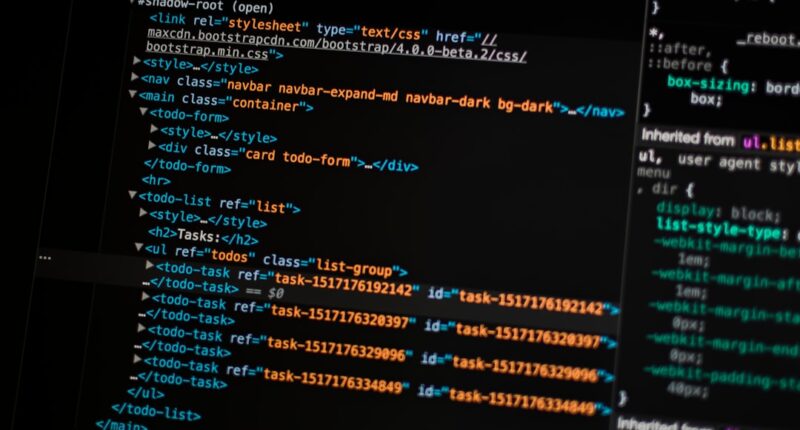Token scanners are specialized tools designed to analyze and evaluate the security of cryptocurrency tokens and their underlying smart contracts. These scanners operate by examining the code and structure of tokens deployed on blockchain networks, identifying potential vulnerabilities, and assessing compliance with best practices in security. The rise of decentralized finance (DeFi) and the proliferation of new tokens have made token scanners increasingly vital for investors, developers, and security auditors alike.
By providing insights into the integrity of a token’s code, these tools help users make informed decisions about their investments and interactions within the crypto ecosystem. The functionality of token scanners can vary significantly depending on their design and intended use. Some scanners focus on static analysis, which involves examining the code without executing it, while others may employ dynamic analysis techniques that involve running the code in a controlled environment to observe its behavior.
This dual approach allows for a comprehensive assessment of a token’s security posture. Additionally, many token scanners incorporate machine learning algorithms to enhance their detection capabilities, enabling them to identify patterns and anomalies that may indicate security risks. As the crypto landscape continues to evolve, the sophistication of token scanners is also advancing, making them indispensable tools for anyone involved in cryptocurrency.
Key Takeaways
- Token scanners are tools used to detect and analyze tokens on blockchain networks, providing valuable insights into their security and vulnerabilities.
- Token scanners enhance crypto security by identifying and flagging potential threats such as fraudulent tokens, scams, and vulnerabilities in smart contracts.
- Token scanners play a crucial role in identifying vulnerabilities within tokens and smart contracts, helping to prevent security breaches and financial losses.
- Token scanners are essential for smart contract audits, as they can identify potential weaknesses and security flaws that could be exploited by malicious actors.
- Integrating token scanners into crypto wallets can provide users with real-time monitoring and alerts for potential security threats, enhancing overall security and peace of mind.
How Token Scanners Enhance Crypto Security
Token scanners play a crucial role in enhancing the overall security of the cryptocurrency ecosystem by providing users with the ability to identify and mitigate risks associated with token investments. One of the primary ways they achieve this is through vulnerability detection. By analyzing the smart contract code, token scanners can pinpoint common vulnerabilities such as reentrancy attacks, integer overflows, and improper access control mechanisms.
For instance, the infamous DAO hack in 2016 was largely attributed to a reentrancy vulnerability in its smart contract. A robust token scanner could have flagged this issue before the exploit occurred, potentially saving millions in lost funds. Moreover, token scanners contribute to building trust within the crypto community.
When users can verify that a token has undergone thorough security assessments, they are more likely to invest in or utilize that token. This trust is particularly important in an industry often plagued by scams and fraudulent projects. By providing transparency through detailed reports on a token’s security status, token scanners help foster a safer environment for both developers and investors.
As a result, projects that utilize token scanners can differentiate themselves in a crowded market, attracting more users who prioritize security.
The Role of Token Scanners in Identifying Vulnerabilities

The identification of vulnerabilities is one of the most critical functions of token scanners. These tools are designed to scrutinize smart contracts for weaknesses that could be exploited by malicious actors. For example, a common vulnerability is the lack of proper input validation, which can lead to unexpected behavior when users interact with the contract.
Token scanners can detect such issues by analyzing how data is processed within the contract and ensuring that all inputs are appropriately sanitized before being utilized. In addition to detecting known vulnerabilities, advanced token scanners are increasingly capable of identifying novel or less common security issues. This is achieved through heuristic analysis and pattern recognition techniques that allow the scanner to learn from previous exploits and adapt its detection methods accordingly.
For instance, if a new type of attack emerges that targets specific coding patterns, a sophisticated token scanner can update its algorithms to recognize these patterns in other contracts. This proactive approach to vulnerability identification is essential in an ever-evolving threat landscape where attackers continuously develop new strategies.
Token Scanners and Smart Contract Audits
Smart contract audits are a critical component of ensuring the security and reliability of blockchain applications. Token scanners serve as valuable tools during these audits by automating parts of the analysis process and providing auditors with detailed insights into potential issues. While manual audits conducted by experienced professionals remain essential for understanding the broader context and implications of a smart contract’s design, token scanners can significantly enhance efficiency by quickly identifying areas that require further scrutiny.
For example, during an audit, a token scanner might flag a specific function within a smart contract that exhibits unusual behavior or lacks adequate testing coverage. This allows auditors to focus their attention on high-risk areas rather than sifting through lines of code without guidance. Furthermore, many token scanners offer integration with popular development environments, enabling developers to run scans as part of their continuous integration/continuous deployment (CI/CD) pipelines.
This integration ensures that security checks are an ongoing part of the development process rather than a one-time event before deployment.
Integrating Token Scanners into Crypto Wallets
The integration of token scanners into crypto wallets represents a significant advancement in user security and risk management. By incorporating scanning capabilities directly into wallets, users can receive real-time assessments of tokens before engaging in transactions or investments. This feature empowers users to make informed decisions based on the security status of tokens they are considering interacting with, thereby reducing the likelihood of falling victim to scams or poorly designed contracts.
For instance, imagine a user browsing through various tokens on a decentralized exchange (DEX). With an integrated token scanner in their wallet, they could instantly see security ratings for each token based on recent scans.
This level of transparency not only enhances individual user security but also contributes to the overall health of the crypto ecosystem by discouraging malicious projects from gaining traction.
Token Scanners and Compliance with Regulatory Standards

As regulatory scrutiny increases within the cryptocurrency space, compliance with established standards becomes paramount for projects seeking legitimacy and long-term viability. Token scanners can assist in ensuring that tokens adhere to relevant regulations by evaluating their compliance with standards such as ERC-20 or ERC-721 for Ethereum-based tokens. By verifying that a token meets these technical specifications, developers can demonstrate their commitment to industry best practices and regulatory requirements.
Moreover, some token scanners are designed to assess compliance with anti-money laundering (AML) and know your customer (KYC) regulations. By analyzing transaction patterns and user behavior associated with specific tokens, these tools can help identify potential red flags that may indicate illicit activity. This capability is particularly important as regulators worldwide increasingly focus on preventing money laundering and other financial crimes within the crypto space.
By utilizing token scanners for compliance checks, projects can mitigate legal risks and build trust with regulators and users alike.
The Importance of Real-Time Monitoring with Token Scanners
Real-time monitoring is an essential feature offered by many modern token scanners, allowing users to stay informed about changes in the security status of tokens they hold or interact with. In an industry characterized by rapid developments and frequent exploits, having access to up-to-date information is crucial for effective risk management. Real-time monitoring enables users to receive alerts about newly discovered vulnerabilities or suspicious activities associated with specific tokens, allowing them to take immediate action if necessary.
For example, if a previously secure token suddenly experiences a significant drop in its security rating due to newly identified vulnerabilities or exploit attempts, users can be alerted instantly through their wallets or monitoring dashboards. This proactive approach allows investors to react swiftly—whether by divesting from a risky asset or conducting further research into the situation—ultimately protecting their investments from potential losses. The ability to monitor tokens continuously not only enhances individual security but also contributes to a more resilient crypto ecosystem overall.
Choosing the Right Token Scanner for Your Crypto Security Needs
Selecting an appropriate token scanner requires careful consideration of various factors tailored to individual needs and objectives. One critical aspect is the scanner’s detection capabilities; users should evaluate whether it employs static analysis, dynamic analysis, or both methods for vulnerability detection. A comprehensive scanner that combines both approaches will likely provide more thorough insights into potential risks associated with tokens.
Additionally, integration capabilities with existing development tools or wallets should be assessed to ensure seamless workflows. Finally, it is essential to consider the reputation and track record of the scanner provider within the industry; established tools with positive reviews from reputable sources are more likely to deliver reliable results.
In conclusion, as cryptocurrency continues to grow in popularity and complexity, the role of token scanners becomes increasingly vital in safeguarding investments and ensuring compliance within this dynamic landscape. By understanding their functionalities and integrating them effectively into various aspects of crypto operations—from audits to real-time monitoring—users can significantly enhance their security posture while navigating this innovative yet risky domain.
If you’re interested in learning more about the world of non-fungible tokens (NFTs) and how they are revolutionizing the job market, check out this article on NFT-Jobs. NFTs are becoming increasingly popular in various industries, including art, music, and gaming, and are creating new opportunities for freelancers and creatives. By understanding the potential of NFTs, you can stay ahead of the curve and take advantage of this emerging technology.
FAQs
What is a token scanner?
A token scanner is a tool used to search for and identify digital tokens within a given system or network. In the context of cryptocurrency, a token scanner is used to detect and analyze various types of tokens, such as ERC-20 tokens on the Ethereum blockchain.
How does a token scanner work?
A token scanner works by scanning through the blockchain or a specific network to identify and analyze digital tokens. It uses various algorithms and search parameters to locate and extract information about tokens, including their issuance, ownership, and transaction history.
What are the benefits of using a token scanner?
Using a token scanner can provide several benefits, including the ability to track and monitor token transactions, identify potential security vulnerabilities, and ensure compliance with regulatory requirements. It can also help in detecting fraudulent activities and unauthorized token transfers.
What are the security implications of token scanners?
Token scanners play a crucial role in enhancing the security of cryptocurrency networks by enabling the detection of suspicious or unauthorized token activities. They help in identifying potential security threats, such as token theft, unauthorized transfers, and fraudulent token issuances.
Are token scanners only used for cryptocurrencies?
While token scanners are commonly associated with cryptocurrencies, they can also be used in other digital token ecosystems, such as gaming platforms, loyalty programs, and asset tokenization. The principles of token scanning can be applied to various types of digital tokens and blockchain-based assets.





